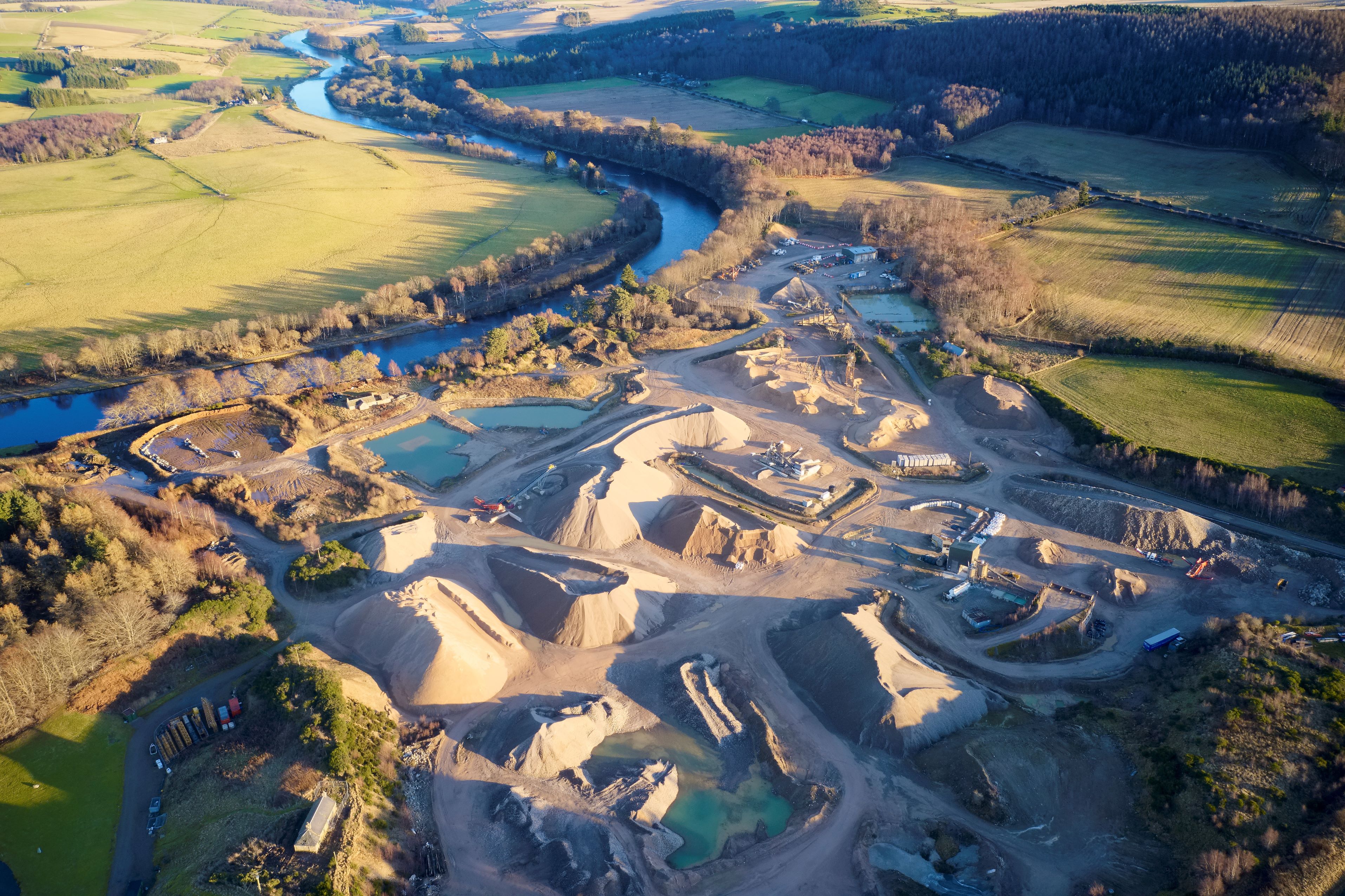
As the saying goes, “If you can’t grow it, you mine it.” From toothpaste and paint to concrete and your mobile phone, these were all produced through the mining and quarrying of minerals. We caught up with William Gagie, Head of Minerals, to learn how mineral extraction can provide a very valuable source of income for landowners and why it is important to plan what land use options there are for the void created after quarrying has finished.
We know that the UK mineral products sector is the country’s biggest industry by volume. In 2021, 419 million tonnes of essential minerals were produced, including aggregates for construction, industrial lime, and sand for manufacturing and when you compare that to the UK producing 24 million tonnes of cereals in the 2022 harvest - it puts the size of the minerals sector into perspective.
In real terms, the sector is small but the demand for minerals in the UK continues to outstrip supply, with just over 50% of the sand, gravel and crushed rock extracted being replenished with new planning permissions. The government has set a national target for 300,000 new homes to be built each year to tackle the acute shortage of housing across the country. So, as we strive to tackle this under-supply of houses, the need to secure new mineral reserves is only going to grow as we build more roads, railways, and energy infrastructure to support this growth.
What we do know is that minerals can only be extracted where they occur naturally, and we are surrounded by a mass of information telling us where mineral deposits are likely to be found in the UK. The British Geological Survey (BGS) has produced a digital map of the country and borehole data is sometimes available through them too. This can be used to confirm what the maps suggest is beneath the surface. If this information isn’t available, a simple trial pit can be dug if the mineral is shallow enough to expose the minerals beneath the soils instead and if a potentially commercial mineral is identified, assessments can then be carried out by mineral surveyors to establish the quality and quantity of the mineral and the feasibility of extraction.
Most of the mineral extraction in the UK is carried out by specialist mineral operators using open-cast methods to produce a quarry. Once a commercial reserve of minerals is confirmed and a mineral operator selected, they will apply for planning permission at their own cost. If planning is successful, the operator will either purchase the mineral or more commonly lease the mineral-bearing ground and pay a royalty to the owners for every tonne of mineral sold.
What we have seen over the last 5 years is the prices operators pay for aggregate minerals (sand, gravel and crushed rock) increase substantially. This has been driven by strong demand from infrastructure projects and commercial developments.
There are many other income opportunities from quarries, including ready-mix concrete plants, recycling, soil washing and inert landfills and with quarries often containing millions of tonnes of reserves, mineral extraction can offer a very lucrative source of revenue for the mineral owners.
Quarries do change the landscape significantly whilst operational but what we must consider is that they are only temporary, so it is important to plan and establish what land uses are required once quarrying has finished as the void created can offer opportunities for landfill or other forms of development.
In areas where the water table is high, we commonly see nature reserves and water parks, Cotswold Water Park and Kingsbury Water are two well-known examples. Quarries can be restored to agricultural or development land if sufficient material can be sourced to fill the quarry void. In such cases, the mineral owners will be paid for every tonne of soil brought into the site, which will then generate further income from the asset.
What we do know for sure, is that over the coming years, there will be a continued need for a substantial supply of minerals as we continue to meet the needs of the economy. Whether we are extending and renewing its housing stock, renewing and diversifying its electricity generation capacity or replacing and maintaining infrastructure and making a step change in flood and coastal defence in response to climate change.
At Fisher German, we have combined experience of over 60 years in this specialist sector and offer a wealth of knowledge in all aspects of mineral property matters. As minerals can only be extracted once it is important to ensure maximum value is gained so it is worth reaching our minerals team to discuss the opportunities for mineral extraction on your land, or any other mineral-related matter.
Find out more about our minerals consultancy services.





